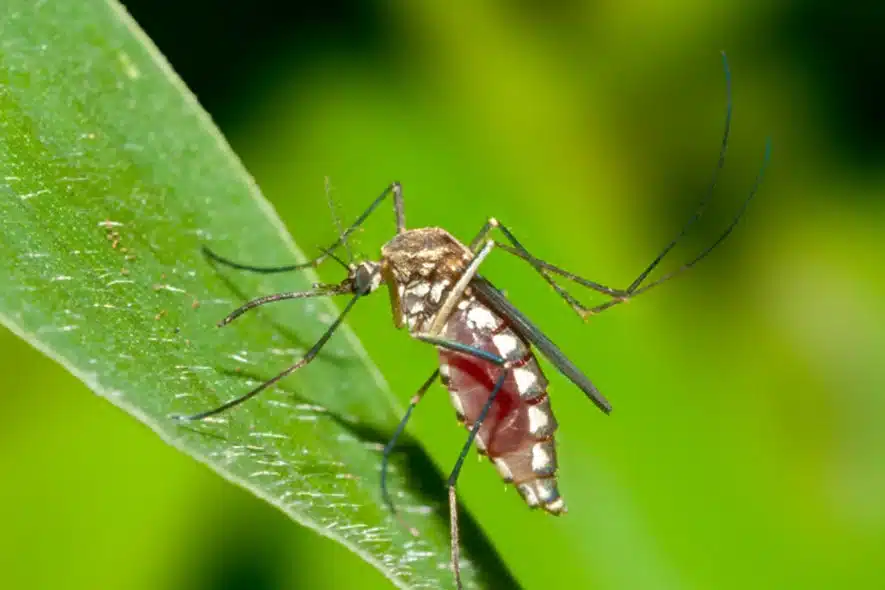Mosquito biology and how knowing it can help you keep mosquitoes away
by Karen Thompson, BugMobiles
Although mosquitoes are very small in size, they pack a big punch. Right now mosquitoes are the number one deadliest animal on the planet, since they carry multiple very harmful diseases. On top of that, mosquitoes themselves are pretty complicated creatures, and anything they do has a reason for it. So knowing more about mosquitoes can and will help you avoid them and be less of a target to them.
Why mosquitoes bite?
When delving deeper into the biology and behavior of mosquitoes, the first thing you are going to discover is that only female mosquitoes bite humans and animals. It is never a male mosquito, simply because they do not have the necessity to suck blood. Female mosquitoes need the proteins in our blood to lay eggs and create new mosquitoes. So, without mammal blood, female mosquitoes cannot create offspring, which is why they bite.
Meanwhile, male mosquitoes survive on plant pollen and nectar. This means that if we don’t let the mosquitoes bite us, we don’t allow them to breed further. Ain’t that a great reason for being more conscious about mosquito protection?
Why do mosquito bites are red and itchy?
The spots that appear after a mosquito bite usually are extremely itchy and sometimes even become big and red. That happens because when the mosquito is entering their snout into our skin they also let in a substance, to help them suck the blood faster and to keep the blood from clotting. And, since this liquid is foreign to our bodies, we develop an allergy-like reaction to it, which results in itching, redness and swelling. Thankfully, mosquitoes are very small, so in most cases, all that will be affected is the immediate area around the bite. However, there are people who are severely allergic to mosquito bites, so if you suffer bigger consequences after mosquito has bitten you, you might one of those unlucky people.
But the good news about this substance is that people tend to build up tolerance to it with time. This is also the reason why often children are that much more sensitive to mosquito bites, yet seniors hardly notice them anymore. It means that the more mosquitoes bite you, the less likely you are to have the bitten areas swell up. And it also means that we need to especially pay attention to protecting our kids from mosquitoes. Using something like a mosquito repellent bracelet is a great way to do it, because this way your children are protected for a longer period of time and you don’t have to remember to reapply bug spray every few hours.
Why mosquitoes are attracted to humans and animals?
Now that we know why mosquitoes bite and why their bites are so annoying, let’s find out why they go for humans and mammals first when finding their next targets.
Mosquitoes have very sensitive and highly developed smell sensors. The main way how they find their victims is the smell of sweat in combination with different body odors. One of such odors that mosquitoes find highly irresistible is carbon dioxide which we exhale when we breathe. So, carbon dioxide in combination with the smell of sweat indicates a possible target to mosquitoes.
How does this helps us when trying to avoid mosquitoes? Simple! By knowing this you know to mask your natural scent if you don’t want to get swarmed by mosquitoes. And it can be done by using a bug spray of some kind, since mosquito repellents work by masking your scent and therefore making you invisible to mosquitoes. So don’t skimp of the insect repellent and lather up any time you know you will be exposed to mosquitoes.
Where mosquitoes are found the most?
Mosquitoes live in humid places, near water bodies, like lakes, ponds, and rivers. The reason behind this is that mosquito mothers lay their eggs in the water, preferably standing water. Also, mosquitoes are often found in woods and meadows, as they prefer long grass, because it protects them from the sun, wind, and other elements, that might do them harm. Moreover, you are more likely to get bit by a mosquito during early morning hours and in the evenings at dawn. Those are the peak hours when mosquitoes are the most active, because at these times it is neither too cold or too warm for them to do their thing.
All this means, that you should avoid spending time near water or in areas where there is long grass or shrubbery present, especially during dusk and dawn. But if that is not possible, as often it isn’t, make sure that you are prepared that there will be more mosquitoes than usual wanting to bite you.
So, how to protect ourselves from mosquitoes?
In short, mosquito females are the ones who bite humans and animals, in order to obtain our blood which is necessary for them to lay eggs. Mosquitoes can lay their eggs only in standing water, therefore you will find more mosquitoes near such bodies of water. Also, their peak hours are during the mornings and evenings, so during the daytime, there is a lesser possibility of you getting bitten by a mosquito. They are attracted to humans because of our natural odors, the smell of sweat and carbon dioxide, which we exhale. But, don’t try to mask them using flowery scents as mosquitoes are attracted also to sweet scents. Perhaps the best plan of action is to try using citrus scents, which are not liked by mosquitoes. As well as employ multiple different mosquito repelling products to help you fight these small, annoying insects and be able to enjoy your summer mosquito-free.
http://InsectCop.net

